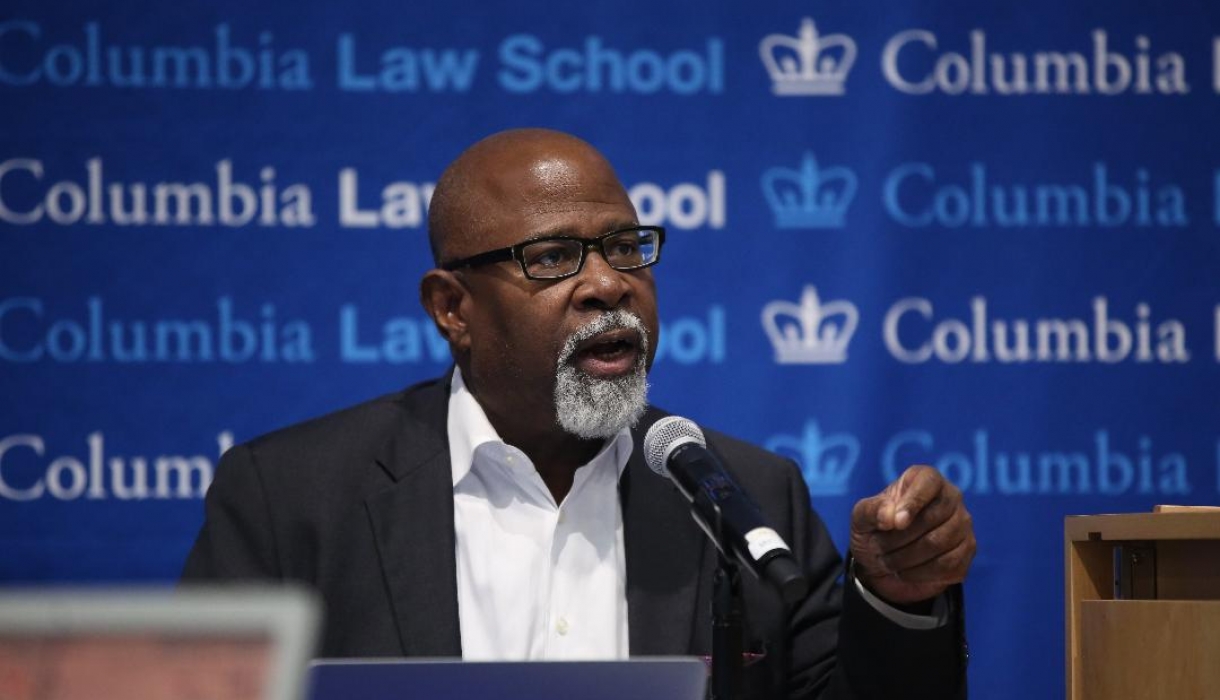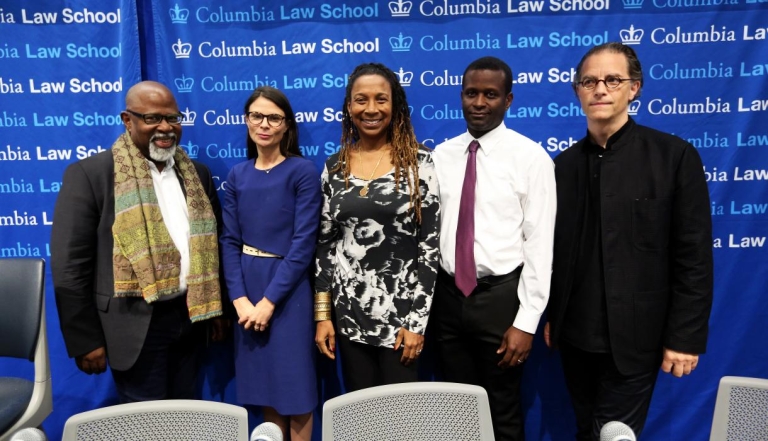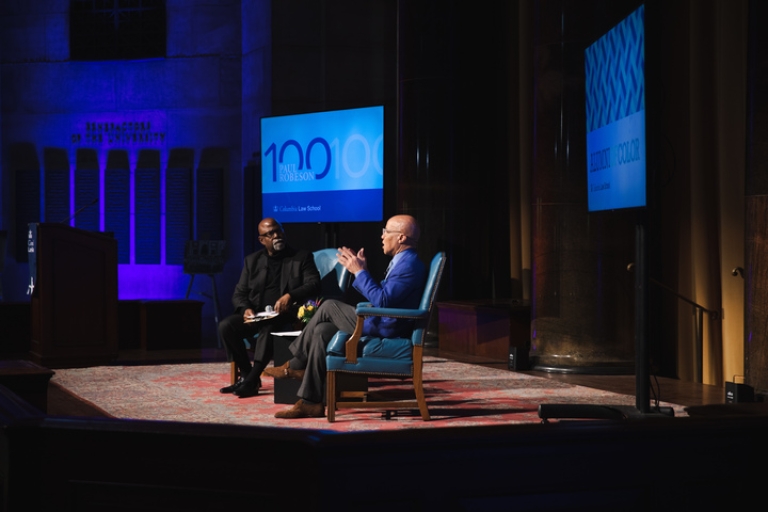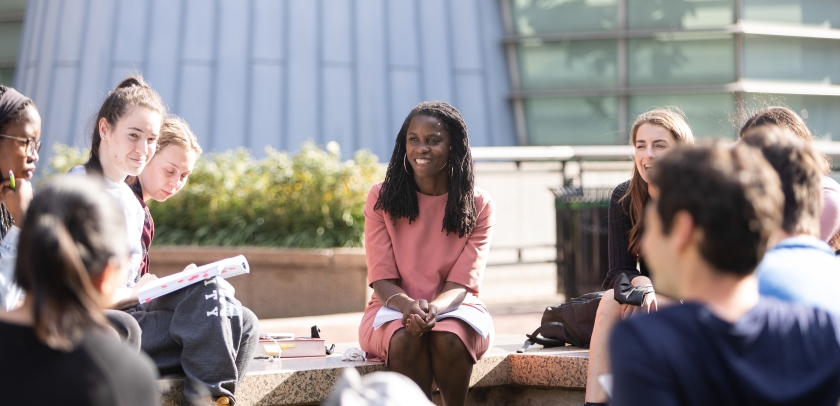Columbia University Honors Professor Kendall Thomas With Faculty Service Award
The expert on comparative constitutional law and human rights is recognized for his exceptional, creative voluntary service that contributes significantly to the university’s diversity, equity, and inclusion efforts.

Kendall Thomas, Nash Professor of Law, has been named one of four recipients of the 2024 Columbia University Faculty Service Award, which honors full-time faculty who engage in volunteer activities that impact students, faculty, or both in furthering the university’s diversity, equity, and inclusion efforts. Thomas is a scholar of comparative constitutional law and human rights whose teaching and research focus on critical race theory, legal philosophy, feminist legal theory, and law and sexuality.
“For me, the Faculty Service Award affirms the enduring value of what the late Professor Derrick A. Bell called ‘ethical ambition,’” says Thomas. (Bell was a prominent legal scholar and one of the originators of critical race theory.) “It’s a message to our students, in particular, that university citizenship and community matter. I’m honored that I've been given an opportunity to model that message during my time at Columbia.”
When Thomas joined Columbia Law School in 1986, he was its first out gay professor and the second Black member of the faculty. His lived experience informs his scholarship, advocacy, and community building—particularly as it relates to supporting students from historically marginalized communities. “He is bold and unflagging in his commitments while also able to inspire generations of law students, faculty, and alumni to join him along the way,” says Gillian Lester, Dean and Lucy G. Moses Professor of Law.

Thomas is the co-founder of the Studio for Law and Culture, which is housed at the Law School and grew out of the former Center for the Study of Law and Culture. He is known for encouraging innovative and ambitious cocurricular and extracurricular activities; for the past three years, students in his Critical Race Theory Workshop seminar have produced a podcast series, Columbia Race Talks: Critical Race Theory (CRT2), which uses critical race theory—the interdisciplinary scholarship on race, racism, and the law—as a lens to look at charged issues, contested histories, and contemporary debates about law, culture, and the politics of race.
Thomas also advised students who launched the Black Male Network (formerly called the Black Men’s Initiative), one of the first projects funded through the Law School’s Anti-Racism Grantmaking program in 2021.
As co-chair of the Naming and Symbols Working Group (an outgrowth of the Law School’s Anti-Racism Steering Committee), Thomas led a two-year review of the Law School’s art, portraiture, and practices around naming certain spaces, honors, and awards; he also oversaw the group’s work to study the Law School’s historical ties to slavery or other practices that warrant contemporary reexamination. He also served as faculty co-chair of the selection committee for the Law School’s first artist-in-residence, Bayeté Ross Smith, a Harlem-based photographer, artist, and education worker, who produced two exhibitions at the Law School that aimed to challenge preconceptions about race, class, and identity and raise consciousness about racial injustice in the United States.

In 2023, Thomas was instrumental in organizing the yearlong centennial celebration of the graduation of Paul Robeson 1923 from Columbia Law School. The capstone event honoring the advocate, athlete, performer, and cultural icon was a fireside chat on “The Future of the American Idea” between Thomas and Darren Walker, president of the Ford Foundation. Thomas also helped the Law School develop an exhibition, “Paul Robeson 100,” featuring archival materials displayed in the lobby of Jerome L. Greene Hall.
Thomas is an exemplar. “Professor Thomas’ colleagueship and example continually models for me and my colleagues who care about social justice how we can use our privileged position as faculty members to build a more just world and to support students in doing the same,” says Susan P. Sturm, George M. Jaffin Professor of Law and Social Responsibility. “I cannot imagine a more deserving recipient of the Faculty Service Award.”
